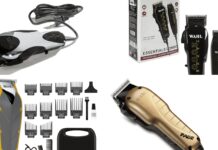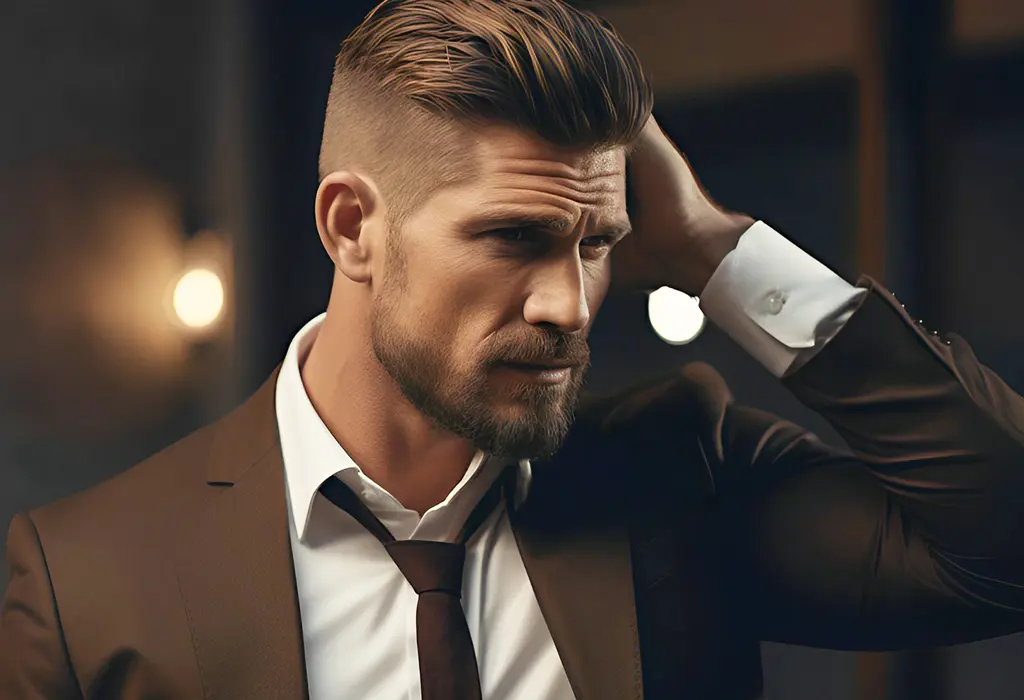
Today, we’re taking a journey through time to explore the fascinating evolution of men’s hairstyles. Our hair isn’t just hair; it’s a reflection of culture, societal norms, and individual expression. As we delve into this intriguing history, you’ll discover how trends have come and gone, with each era leaving its unique mark on men’s grooming.
But what role do fades play in this evolving tapestry of hairstyles? Well, they’re the chameleons of men’s cuts, adapting and transforming to suit the times. From the slicked-back sophistication of the 1950s to the Rebellion of the 1960s and the hip-hop influence of the 1980s and 1990s, fades have always been at the forefront of change.
Join us as we unlock the secrets behind the evolution of men’s hairstyles and how fades have remained a constant, adapting to the ever-shifting sands of style.
A Glimpse into Men’s Hairstyles Through History
Slicked-Back Styles to Iconic Pompadours (1950s)
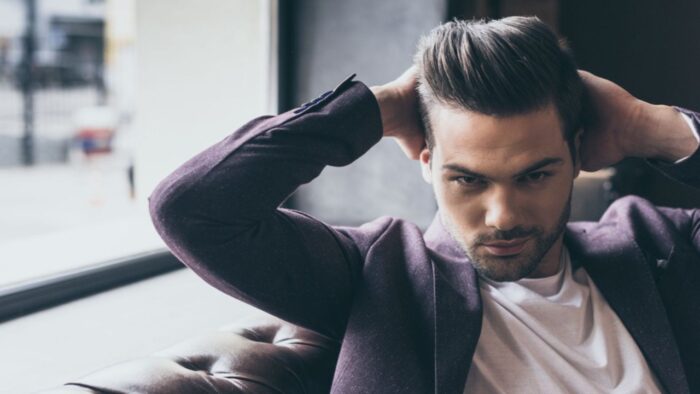
In the 1950s, men’s hairstyles underwent a significant transformation. The refined and sophisticated look of slicked-back hair, often accompanied by the liberal use of hair products, was all the rage. Think of leading men like Cary Grant and Clark Gable, who epitomized this sophisticated style. It was a time when a gentleman’s grooming was meticulously attended to, and a perfectly combed head of hair was a symbol of poise.
The pinnacle of this era’s hairstyling was undoubtedly the iconic pompadour. Elvis Presley, with his unmistakable pompadour, became an enduring style icon. This voluminous, gravity-defying haircut, characterized by its high volume and upward sweep, became a hallmark of 1950s fashion.
The Rebellion of the 1960s
Fast forward to the 1960s, and the scene couldn’t be more different. The cultural landscape was shifting, and with it, men’s hairstyles. The Rebellion of this era manifested in long, unkempt hair, symbolizing nonconformity and a rejection of traditional grooming standards.
Popularized by music legends like The Beatles and Bob Dylan, the “shaggy” look became a symbol of counterculture. The 1960s ushered in a new era of self-expression, and men’s hair became a canvas for personal Rebellion.
Hip-Hop Influence (1980s and 1990s)
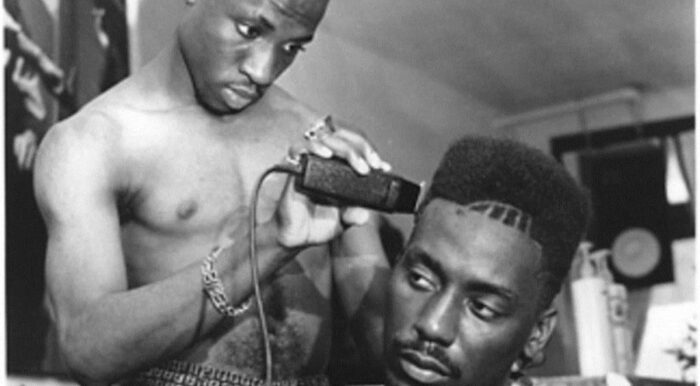
As we stepped into the 1980s and 1990s, the influence of hip-hop culture on men’s hairstyles cannot be overstated. The hip-hop movement brought a wave of change and innovation. Fades, in particular, gained immense popularity during this time.
The fade, with its signature tapering of hair from the sides to the top, became a symbol of urban style. Hip-hop artists like LL Cool J and Kid ‘n Play flaunted this edgy haircut. It was not just a haircut but a statement, a way to show individuality and be a part of the vibrant hip-hop community.
Modern Men’s Hairstyles
Today, modern men’s hairstyles represent a fusion of classic and contemporary looks. Versatility is the name of the game. Men are no longer confined to a single style but can choose from a wide array of cuts that suit their personalities and lifestyles.
Contemporary gents are blending classic elements, like the well-groomed appearance of the 1950s, with a touch of Rebellion from the 1960s and the urban influence of the 1980s and 1990s. The result is a dynamic range of styles that adapt to the ever-evolving world of fashion and self-expression.
The History of Fade Haircuts
From Military Standards to Pop Culture
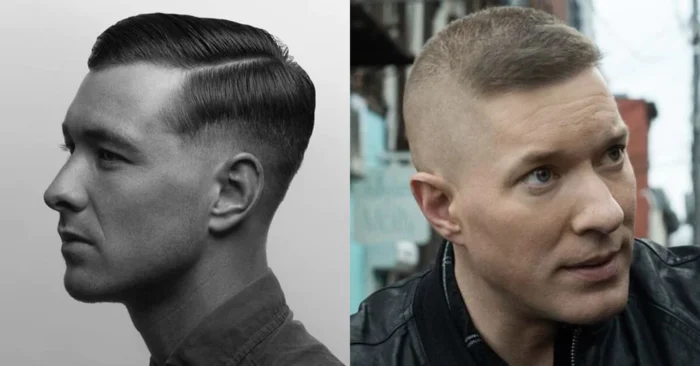
The history of faded haircuts is a tale of transition, adaptability, and style. It all began in the 1940s and 1950s when military standards dictated that practicality should reign supreme. Soldiers needed a haircut that not only looked sharp but was also easy to maintain in the field. And so, the fade was born.
This style involved a gradual tapering of hair from the sides to the top, resulting in a clean, polished look. The military crew cut, characterized by its short sides and slightly longer top, is an early manifestation of the fade and still holds a timeless appeal.
As the soldiers returned home, they brought this pragmatic yet stylish haircut with them, and it soon transitioned into civilian life. The fade, once a military standard, was becoming a symbol of sharpness and discipline for men across the country.
Evolution into Various Styles
The 1980s heralded a new era for faded haircuts, especially within the vibrant and influential hip-hop culture. Fades evolved into various styles that were not just haircuts but statements of individuality. The hi-top fade, with its boxy, towering shape, became an iconic look. Then, there was the flat top, a sharp and angular variant that oozed confidence.
Hip-hop artists like Big Daddy Kane and DJ Jazzy Jeff popularized these styles, making the fade a symbol of urban cool. It was no longer just about practicality; it was about making a bold statement with your hair.
Continued Popularity
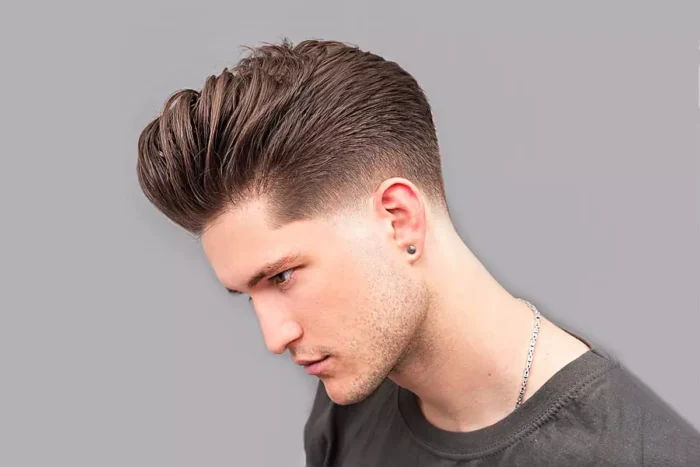
Why do fades continue to be popular today? The answer lies in their simplicity, adaptability, and versatility. A well-executed fade can work with various hair types and can be easily customized to suit your style. Whether you’re in a suit or casual wear, the fade effortlessly complements your look.
Today’s men are all about practicality and style, and the fade offers both. It’s a low-maintenance haircut that doesn’t compromise on appearance. Whether you opt for a Low Fade, High Fade, Mid Fade, or the daring Skin Fade, you’re guaranteed to look sharp without investing hours in styling.
The Versatility of Fades
Adaptable to Various Styles and Hair Types
Fades are the chameleons of the hair world, adapting effortlessly to different styles and hair types. Whether you have straight, curly, or wavy hair, there’s a fade that can complement your natural texture. Fades also play well with various styling products, so you can rock a polished look or keep it casual with ease. The versatility of fades ensures they’re a go-to choice for the modern man.
The Role of Clippers in Achieving the Perfect Fade
Essential Tools for Hairstyling
Let’s get down to the nitty-gritty of achieving that flawless fade haircut – the clippers. These trusty tools are essential for anyone looking to rock a perfect fade. Whether you’re a professional barber or someone who prefers the DIY approach, clippers are your best friends in the world of hairstyling.
Why are clippers indispensable? They provide precision and control that no pair of scissors can match. Clippers allow barbers and individuals alike to sculpt hair with accuracy, making it easy to achieve that crisp, clean fade line that’s the hallmark of a great haircut.
Discover the latest trends in men’s grooming and hairstyling at cutsandstyle.com, your ultimate destination for all things related to fades, clippers, and the art of looking sharp.
Versatility and Cost Savings
The versatility of hair clippers is astounding. Not only can they help you maintain your fade, but they’re also incredibly handy for managing your beard. This versatility means that you can save both time and money on barber visits. With a good set of clippers in your grooming arsenal, you can keep your hair and beard looking sharp without the recurring expense of salon appointments.
In a world where time is precious, having the ability to groom yourself at home is a game-changer. Clippers offer convenience, cost savings, and the freedom to style your hair and beard just the way you like it, whenever you like it.
Conclusion
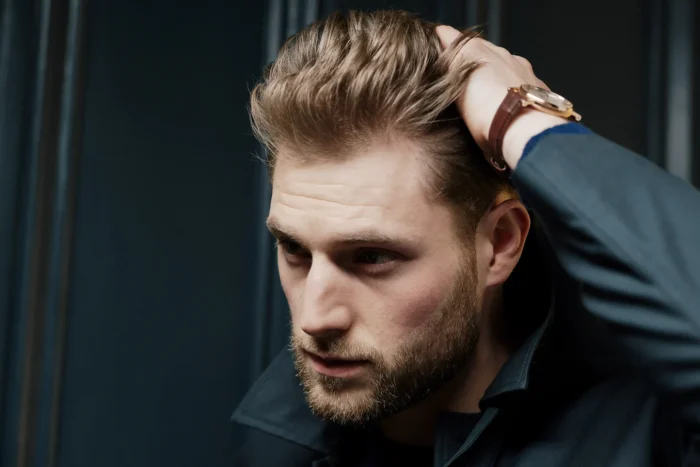
Fades have been and continue to be more than just a haircut; they’re a statement. They symbolize confidence, self-expression, and a commitment to both form and function. Fades have cemented their place in the world of men’s grooming, and their significance remains unwavering.
As you begin your hairstyling journey, whether in the barber’s chair or with clippers in hand, remember that the fade is more than a haircut – it’s a tradition, an expression of individuality, and a timeless choice for men who appreciate style with substance. So go ahead, embrace the fade, and wear it with the confidence that comes from knowing you’ve chosen a truly enduring style.



